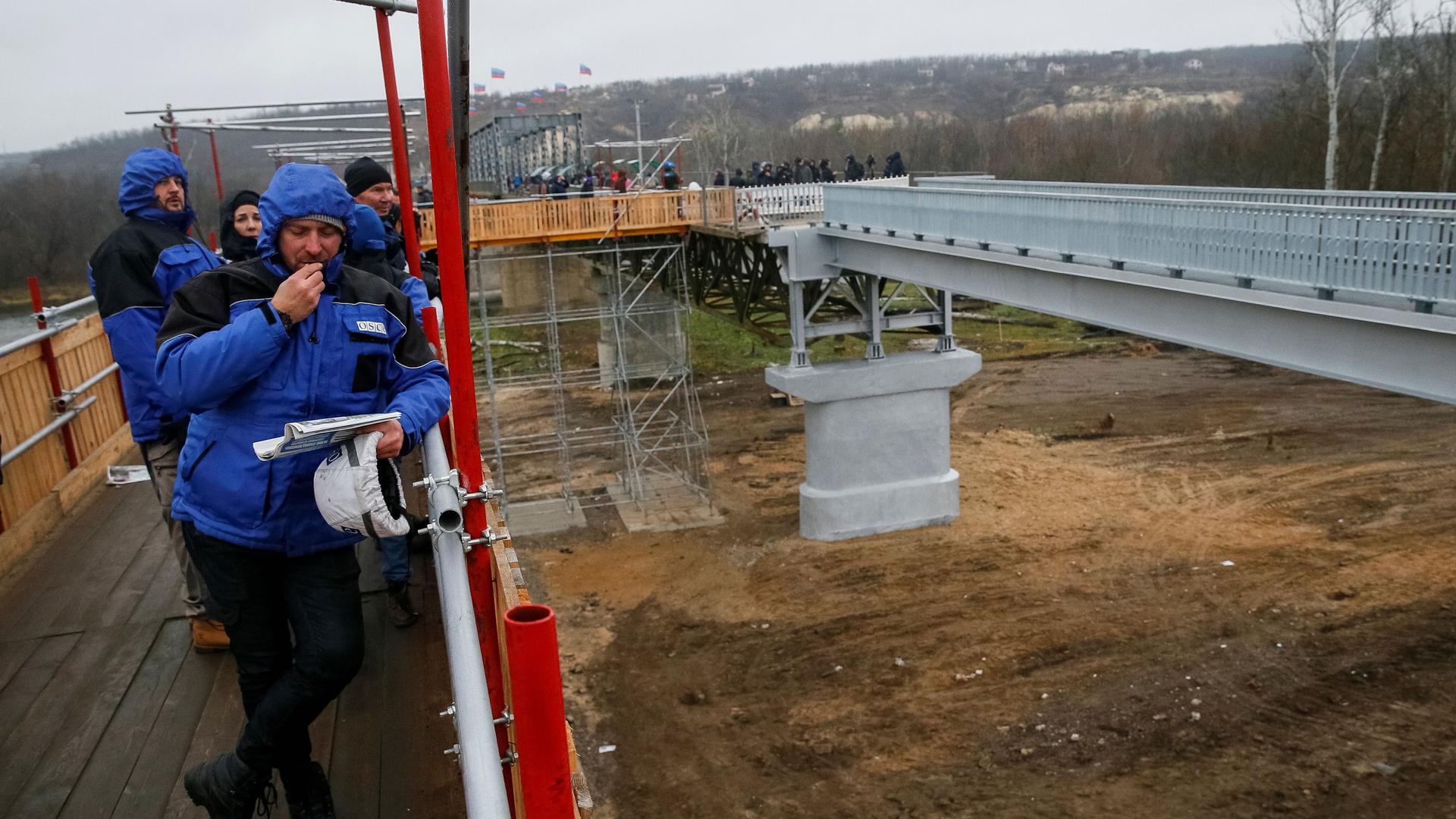A diminished team of international election observers begins its mission in the US
The largest international body charged with monitoring elections — the Organization for Security and Cooperation in Europe, or OSCE — wanted to bring in 500 observers for the upcoming US elections.
Instead, there will be about 130. That’s mostly because of concerns about COVID-19; fewer people than expected volunteered to come to the US.
“The major thing that we’re going to have to make an adjustment in is the actual in-polling station Election Day observation,” said Urszula Gacek, a Polish senator, European Parliament member, and the leader of the OSCE’s mission in the US. “That said, all other aspects of the mission remain effectively unchanged. At the end of the day, I still think it’s going to be a true reflection of what’s been happening here in the United States.”
Related: Chinese reactions to Trump and Biden are mixed
Gacek leads a 30-member team that’s keeping track of legal and campaign developments, as well as mail-in ballots. They’ll issue an interim report in three weeks.
Just before the Nov. 3 election, Gacek’s team will be joined by 100 additional monitors from 30 countries. They’ll deploy in pairs under a mandate of strict noninterference. They’ll be watching things such as voter registration, access to the polls and media coverage.
Gacek said the monitors will attempt to compensate for their smaller numbers by observing a “representative sample” of polling locations.
“What we’re having to do on Election Day is pick our places well. The analysis will be more anecdotal because the sample group will regrettably be too small. And that is not anybody’s fault.”
“What we’re having to do on Election Day is pick our places well,” she said. “The analysis will be more anecdotal because the sample group will regrettably be too small. And that is not anybody’s fault.”
The OSCE typically observes elections in developing countries. But, like all other 56 members of the global organization, the US is also obligated to invite international election observers. Those observers only started coming in 2002 — after the messy Bush v. Gore election of 2000.
Related: First debate between Trump, Biden marked by acrid tone amid mounting crises
Not all US states have allowed in the monitors, though. This year, just 28 states and the District of Columbia have invited international observers.
There’s also the added complications of President Donald Trump’s repeated questioning of mail-in ballots, claims of a rigged election and evasion on whether he’ll respect the result of the election. Gacek refused to comment on what she called those “hypotheticals.”
“At this stage, we can’t prejudge,” she said. “We’re evidence-based; we need to see the facts. We need to see whether things really do or do not go wrong.”
“At this stage, we can’t prejudge,” she said. “We’re evidence-based; we need to see the facts. We need to see whether things really do or do not go wrong.”
But those concerns are why it’s so important to have international monitors, said Judith Kelley, a professor of political science and dean of Duke University’s Sanford School of Public Policy.
Related: What Trump’s taxes mean for national security
“What I find striking is that the United States, in many ways, was the driving force behind the creation of the whole idea of international election observers, and it is rather inconceivable that we’re finding ourselves in a situation now where we legitimately appear to be having a need for them ourselves,” she said.
Kelley said that, in developing countries, international monitors have been instrumental in shoring up public confidence in elections. But she said they may not have that effect this time.
“I am skeptical that they will have any impact in the United States, specifically in this election — not because they don’t have the potential to do so, but because they won’t be given the opportunity to do so,” Kelley said.
Related: Retired army commander: US institutions will ‘ensure a peaceful transition of power’
The day after the election, the OSCE team will hold a press conference to talk about their initial findings. Afterward, as usual, they’re prepared to stay to monitor the counting of ballots and whatever court process may play out to decide the election.
Roughly two months later, they’ll issue a final report with recommendations for what could have been done better.
We want to hear your feedback so we can keep improving our website, theworld.org. Please fill out this quick survey and let us know your thoughts (your answers will be anonymous). Thanks for your time!
